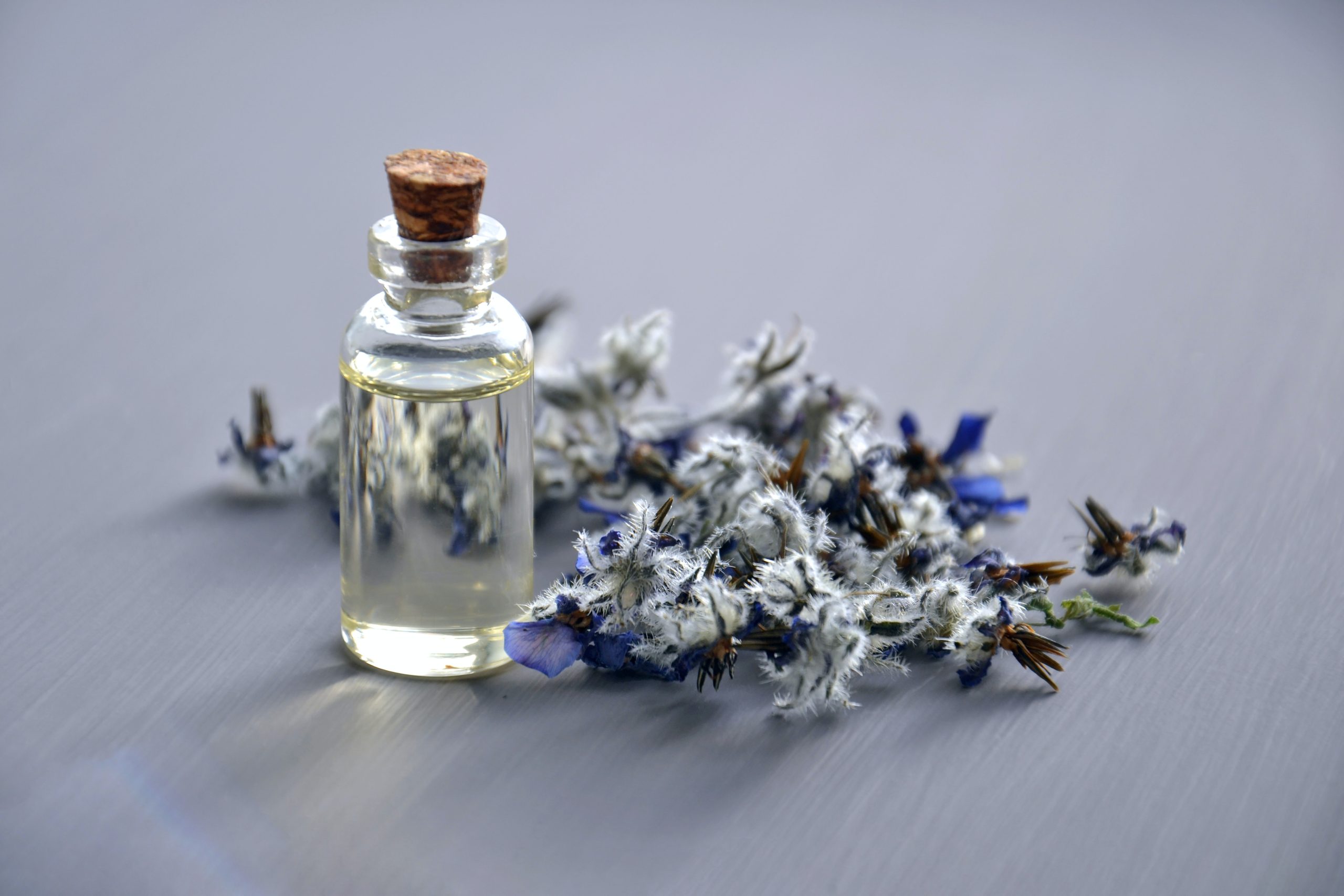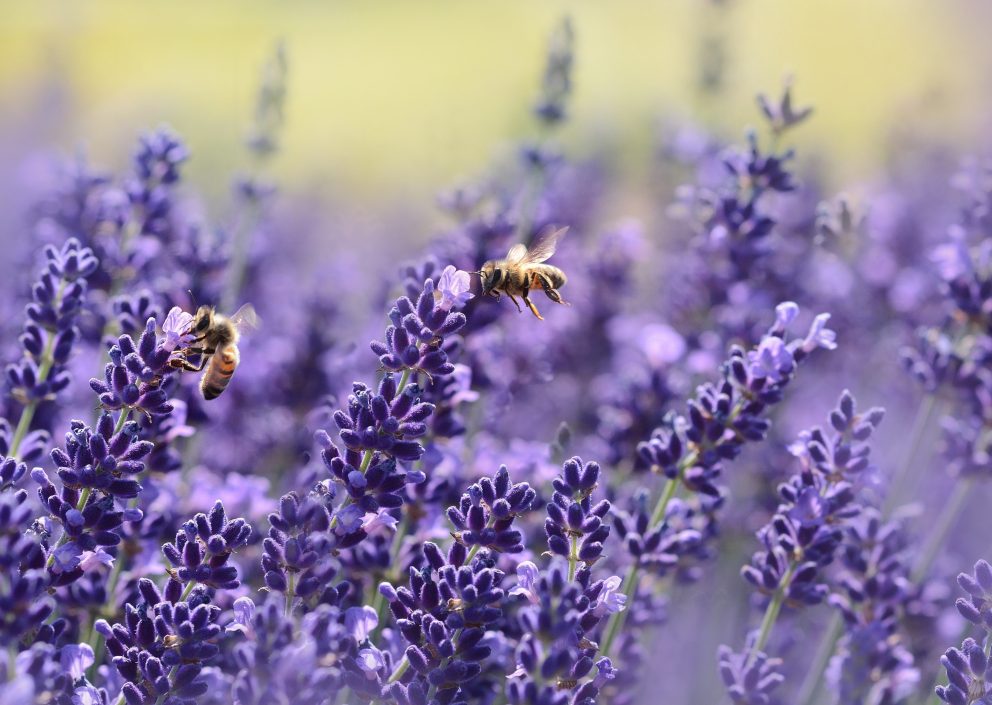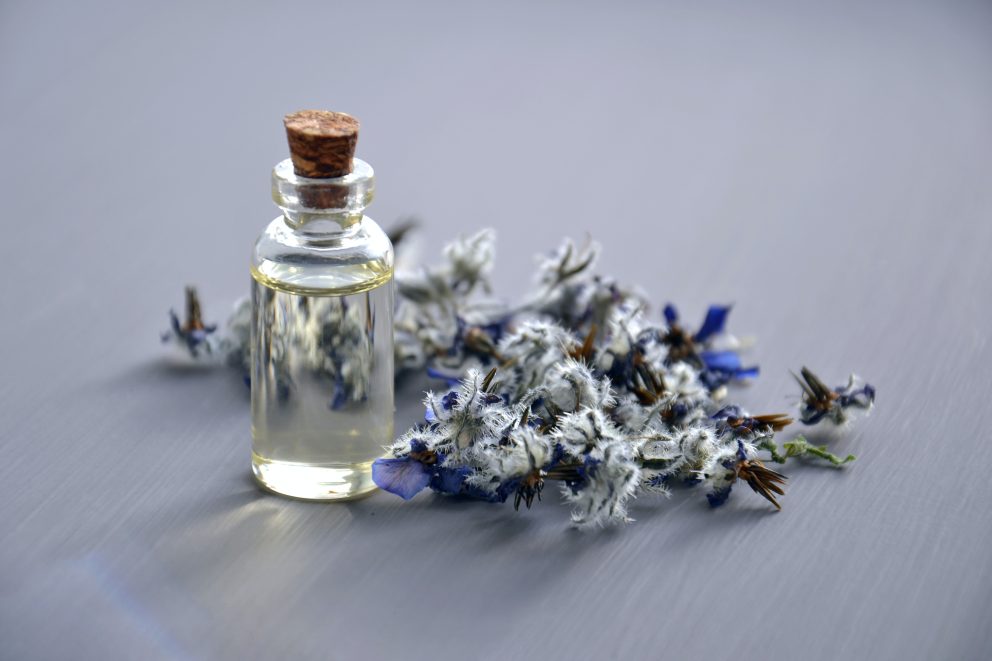
What is Linalool? Understanding Linalool Terpene Effects

Photo by Pixabay
Cannabis is finding wider circulation throughout the world due to its many medicinal benefits. While the average person may know about cannabinoids like THC and CBD, terpenes are not as popularly known. Terpenes are chemicals that give cannabis and fruits, vegetables, and other plants their distinct smells and flavors.
Linalool is a common terpene found in cannabis, flowers, and some spices. It’s popular for its fragrance which is used in countless products from food additives to cleaning products to insecticides?!? It also boasts a calming presence.
This post will focus on the chemical linalool and profile its many health benefits, popular uses, and how it just might boost your medical marijuana experience.
What Are Terpenes?
Terpenes are chemicals made by plants a.k.a. phytochemicals that give plants their unique flavor and scent profile. People can often focus on the value of these chemicals to humans, many as antioxidants, but what is their role in nature. It’s easy to overlook that terpenes serve certain key life functions in helping plants stay alive, attract pollinators, and avoid pests.
Terpenes in addition to giving cannabis strains their different complex scent profiles also contribute to what is known as the entourage effect. This is how the combination of terpenes, cannabinoids, and flavonoids all create one unique experience greater than their individual effects. This is because these chemicals can have interactions and affect the body in different ways.
Basically, the sum of all of these chemical interactions dictate your high and the physiological effects of your cannabis. Cannabinoids turn up and down certain body functions by interacting with your endocannabinoid system. While THC can cause euphoria, the munchies, and reduce inflammation. Terpenes and flavonoids can impact how those cannabinoids affect you.
Limonene can help boost your euphoria from THC while pinene, often found in peppercorns, can stop you when you’re too high. It can also temper the anxiety some people feel from cannabis. Linalool also has its own antianxiety properties.
Apply for a Medical Marijuana Card Online Today
Join over 100,000 patients who have chosen Green Health Docs as their medical cannabis doctors. We have a 99% approval rate and offer a 100% money back guarantee!
What Is Linalool?
Linalool is a terpene renowned for its unique scent. It is not only found in weed but in over 200 common fruits, vegetables and spices.
You can find the terpene linalool in:
- Lavender
- Birch Bark
- Cinnamon
- Peanuts
- Spearmints
- Coriander
- Common Thymes
- Limes
- Ylang-Ylang
- Bergamot
- Jasmine
- Geranium
- Grapes
- Lemons
- Grapefruit
- Oranges (Bitter/Sweet)
- Pineapples
- Black Currants
- Basil
- Common Oregano
- Rose
Given its citrusy, floral aroma it’s often harvested for perfumes and fragrances. It also lends its scent to beauty aids and cleaning products.
Linalool can be used as a food additive to give flavor. Linalool or its derivatives can be found in
alcoholic and nonalcoholic beverages, hard and soft candies, chewing gum, ice cream, gelatin, puddings, condiments, relishes, meat products, and baked goods.
Linalool is commonly used in the formulas of aftershaves, bath products, bubble baths, cleansing products, hair care products, lipsticks, moisturizers, perfumes and colognes, shampoos, skin care products and suntan products.
Linalool can even be made artificially. So linalool can be used in both natural and artificial flavors and be both natural and artificial itself.
Synthetic linalool is common in beauty or household products. Products that list fragrance, parfum, phthalates, DEP, DBP or DEHP as an ingredient likely contain synthetic linalool. If you see linalool listed on a label it’s also likely synthetic linalool. If you want to avoid synthetic linalool try certified organic products to avoid any chemical additives.
Finally, linalool can even be used as a natural insecticide. Linalool is nontoxic to humans and animals but it does help plants stave off pests and even kill some bugs. It can target fleas, mites, spiders, ticks and mosquitoes. It can be used as an insecticide near pets and farm animals to avoid toxicity.
Linalool is a common ingredient in flea powders and sprays and mosquito repellents like candles and body sprays. Case in point if you wondered how you can have a fragrant body spray like Skin So Soft prevent mosquitos its thanks to the linalool.

Photo by Maria Orlova
The Linalool Smell
Given the wide gamut of plants that contain linalool, its odor can be nuanced. Its scent profile can be floral, spicy, woody, with certain citrus notes. Lavender is the plant most attributed to its linalool content.
Linalool Smells Like
Linalool can smell like lavender, after all, it helps give lavender its distinct signature scent. Linalool’s scent can also resemble bergamot oil or lily of the valley. Pure linalool can be described as having a fresh, clean, mild, light floral odor with a slight citrus impression.
Linalool Flavor
Linalool has a light, citrus-like floral flavor. It’s lightly sweet with a spicy tropical accent and some woody or earthy undertones. It’s rare to consume pure concentrated linalool but in looking at the various plants that contain it you can see how they share certain flavor notes.
What Is Linalool Used For?
Linalool is very popular as a fragrance. Not only does it have a delightful scent, it’s known to be relaxing when smelled. This is often part of the therapeutic benefits of lavender and other essential oils that are high in linalool, they can help encourage a more positive mood.
Combined with its antifungal and antimicrobial properties, linalool is used as a scent in 60% to 80% of perfumed hygiene and cleaning products. It’s a commonly used scent and you may not realize how often it can appear in ingredients because it sometimes has other names.
Linalool is often used as a food additive. It often is used for its citrus notes or its proximity to lavender.
Linalool Benefits
Like many of cannabis’s chemicals, there are still discoveries to be made for the full potential uses of linalool. What has been found has been promising spanning the gamut of potential health benefits.
Linalool is most commonly known as a stress reliever. People have been using lavender for its anxiolytic (stress-easing) properties for centuries. One study in mice showed Linalool’s aroma appeared to activate GABA receptors in the brains of rodents. GABA receptors inhibit or reduce nerve impulses which can help with reducing stress and other neurological signals.
This is also how linalool can also help with pain caused by nerve damage. The linalool in lavender has been linked to neuroprotective properties, as well. Lavender has been shown to not just be anxiolytic but also a mood stabilizer, sedative, analgesic, and anticonvulsive.
A study found that linalool when combined with the terpene pinene can have antidepressant effects in animals. The combination of these terpenes in even higher doses can modulate neurotransmitters like dopamine and serotonin to promote relaxation. It can even temper your mood.
Cannabis does contain lower amounts of linalool so there’s no telling if cannabis will provide these same effects but it does showcase some potential for medical marijuana innovation. Also, it doesn’t hurt to have these chemical reactions as potential boosts for your treatment.
Linalool also has antimicrobial, antibacterial and antifungal properties. Dr. Ethan Russo’s 2011 study, Taming THC: Potential Cannabis Synergy and Phytocannabinoid-terpenoid Entourage Effects found how the entourage effect of linalool, limonene, and CBG, when combined, can help treat the most resistant form of staph infections.
Linalool has anti-inflammatory properties which have been found to help with the treatment of a few different conditions. A 2016 study points to how its anti-inflammatory nature can help restore cognitive and emotional functions of people suffering from Alzheimer’s disease. There’s the potential for it to even be used in Alzheimer’s prevention.
One study found patients treated with lavender oil as part of their post-anesthesia care required less morphine or pain meds than patients in the control group. Lavender aromatherapy may help reduce our reliance on opiates for postoperative pain. Given the opioid crisis, this can be a great boon to doctors.
A 2015 study found linalool’s anti-inflammatory effects can even help repair the lung damage caused by cigarette smoking. Some research points to linalool having anti-seizure properties, too. It also, when combined with pinene, boosts the anti-inflammatory properties of frankincense. Another study suggests Linalool can also potentially ease sinus problems and reduce the symptoms of the common cold.
There seems to be no shortage to linalool’s benefits which might be why it’s so ubiquitous in our world from beauty products to natural medicines to even insect repellents. This bevy of benefits points not just to its popularity but its vast potential in homeopathic healing. This can boost some of what you’re seeking from your medical marijuana.

Photo by Mareefe
Strains High In Linalool
After hearing about its many benefits, who wouldn’t want to dose with a cannabis strain high in linalool? There are higher concentrations of linalool in the following cannabis strains:
- Amnesia Haze
- Do Si Dos
- Granddaddy Purple
- Lavender/Lavender Kush
- LA Confidential
- Kosher Kush
Is Linalool Safe?
Linalool is not toxic but it does have some potential health hazards and risks. People can be allergic to it and pure linalool can cause contact dermatitis. It can also cause skin irritation and can be damaging when exposed to your eyes.
When synthetically made it can be mixed with chemicals that can cause greater issues, such as nasal sensitivity, allergies and skin rashes.
Ultimately, it’s best to use caution when exposing yourself to linalool. However, most people are using it in something or a plant that contains it. You’re not likely to face too much of a problem with linalool unless you have a specific allergy. That is possible and why some seek linalool-free products.
Linalool For Hair
Linalool wouldn’t seem like a must-have for hair products. However, given the potential for hair loss from stress or genetics, linalool can actually help stimulate hair follicles. It can also support hair by increasing blood flow to the scalp which can lead to stronger hair and more growth.
Its anti-inflammatory properties can also help reduce inflammation that can lead to hair loss. Linalool also can help manage sebum production to keep the scalp from drying out and keep your hair moist.
Again, there are people out there who may have major allergy sensitivities to linalool. They may seek out linalool and limonene free haircare products. Given its high prominence in beauty products, you may need to seek out special brands that do not have synthetic or organic linalool.
Final Thoughts
Cannabis is not a panacea. However, with growing legalization science is finding it is chock full of individual chemicals which, when combined or individually, boast a series of health benefits. Terpenes like linalool have the potential to be an antioxidant, pain reliever, anti-inflammatory, antibiotic or antimicrobial.
We are expanding our understanding of how terpenes and cannabinoids are at play in the body when dosing with medical marijuana. They can supplement your health goals and support your prescription benefits from cannabis.
If you’d like to legally use cannabis, you can easily sign up for your medical marijuana card today. You can see for yourself how these various chemicals are at play and find a strain that works for you.
 This article has been reviewed by Dr. Anand Dugar, an anesthesiologist, pain medicine physician and the founder of Green Health Docs. Graduating from medical school in 2004 and residency in 2008, Dr. Dugar has been a licensed physician for almost 20 years and has been leading the push for medical cannabis nationwide.
This article has been reviewed by Dr. Anand Dugar, an anesthesiologist, pain medicine physician and the founder of Green Health Docs. Graduating from medical school in 2004 and residency in 2008, Dr. Dugar has been a licensed physician for almost 20 years and has been leading the push for medical cannabis nationwide.
